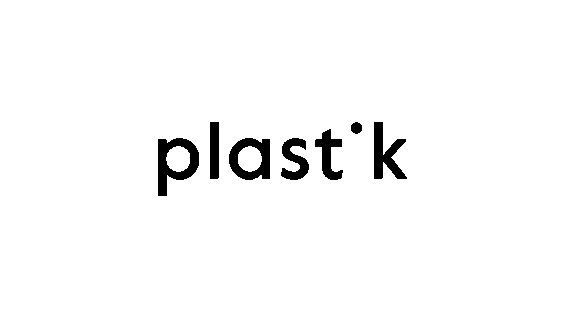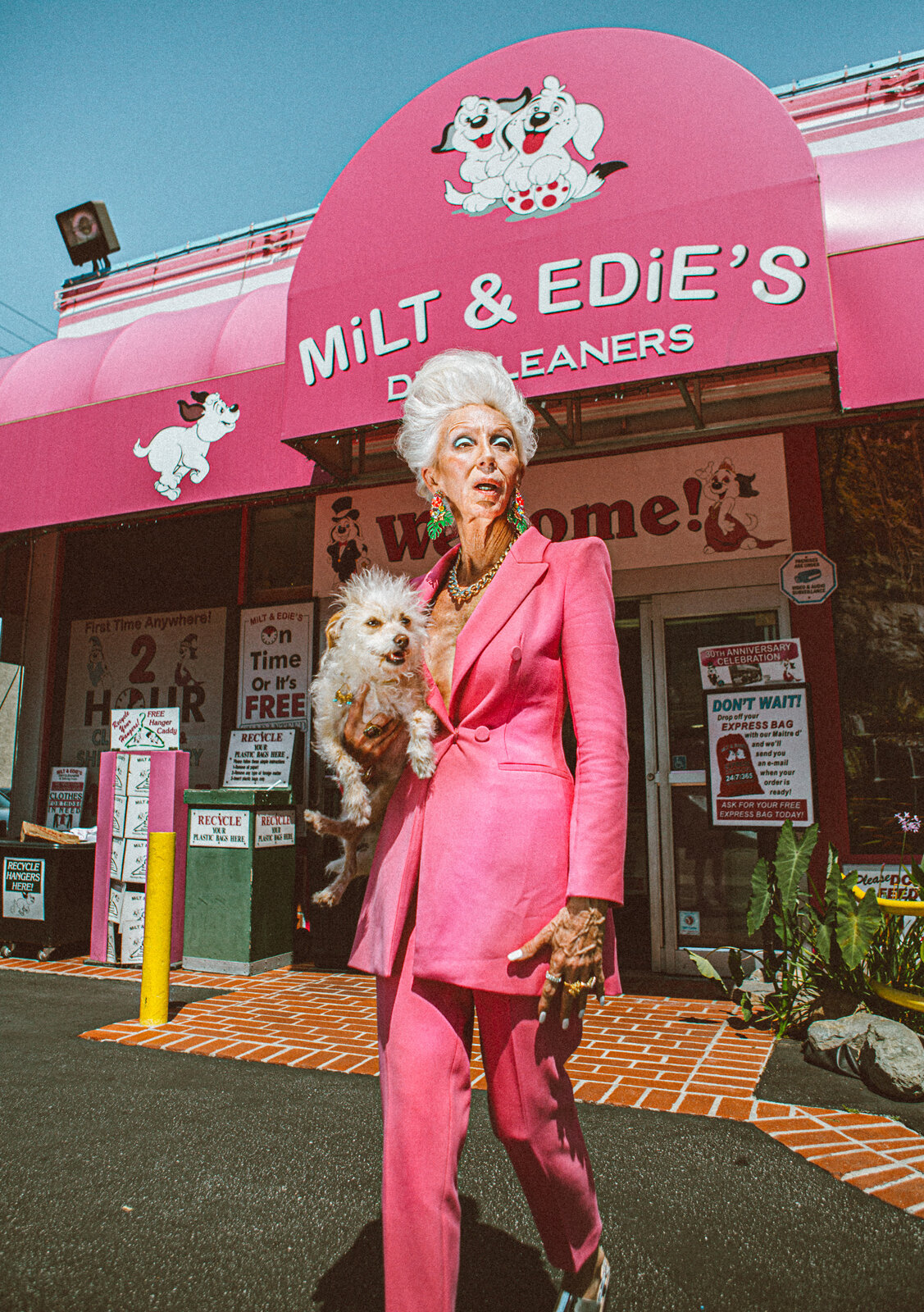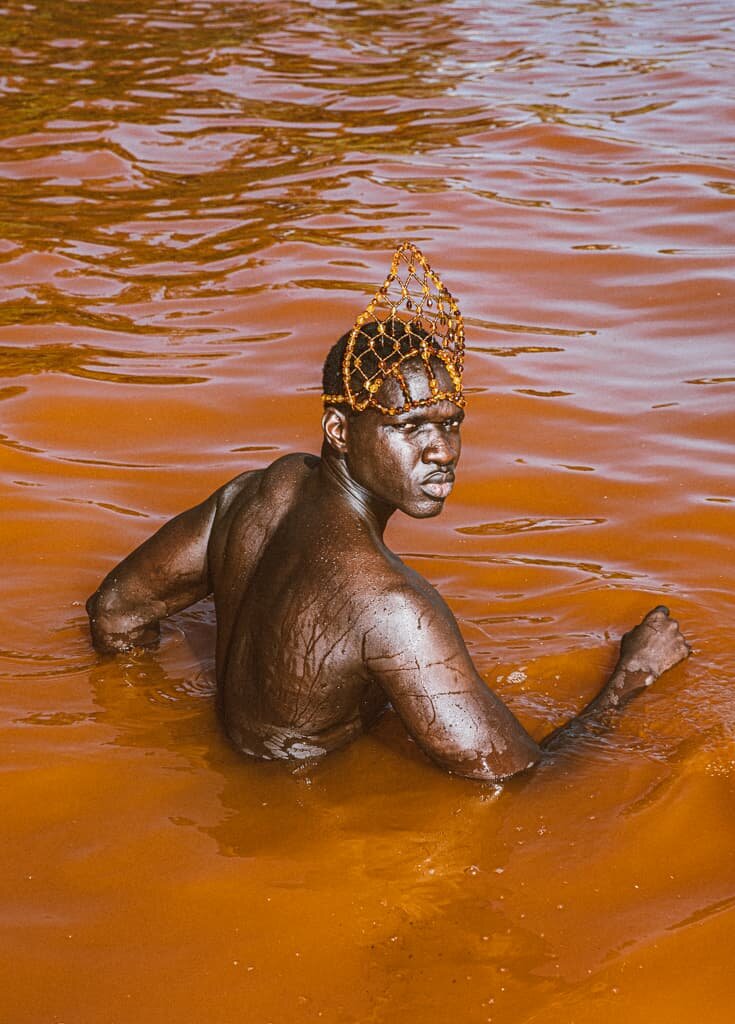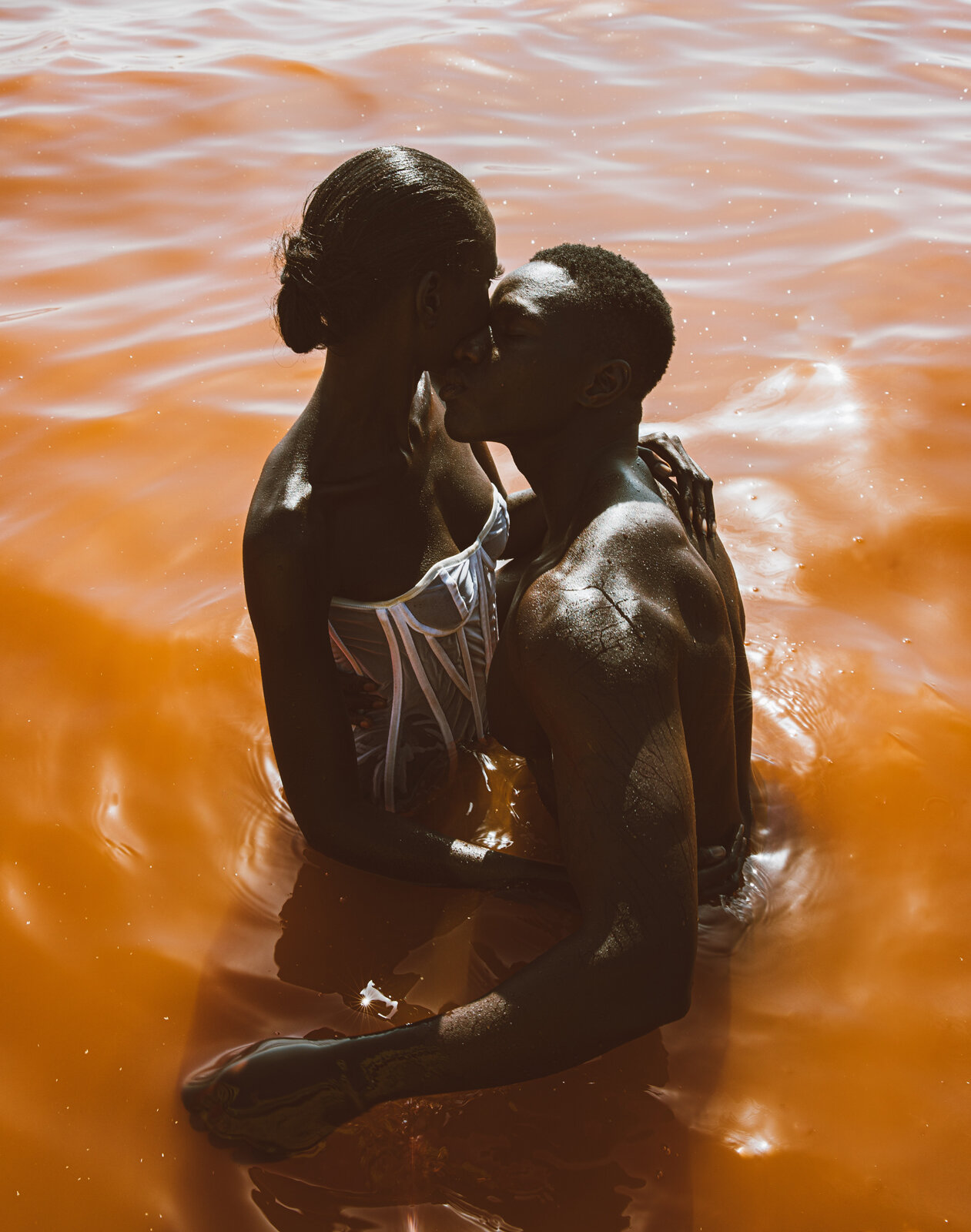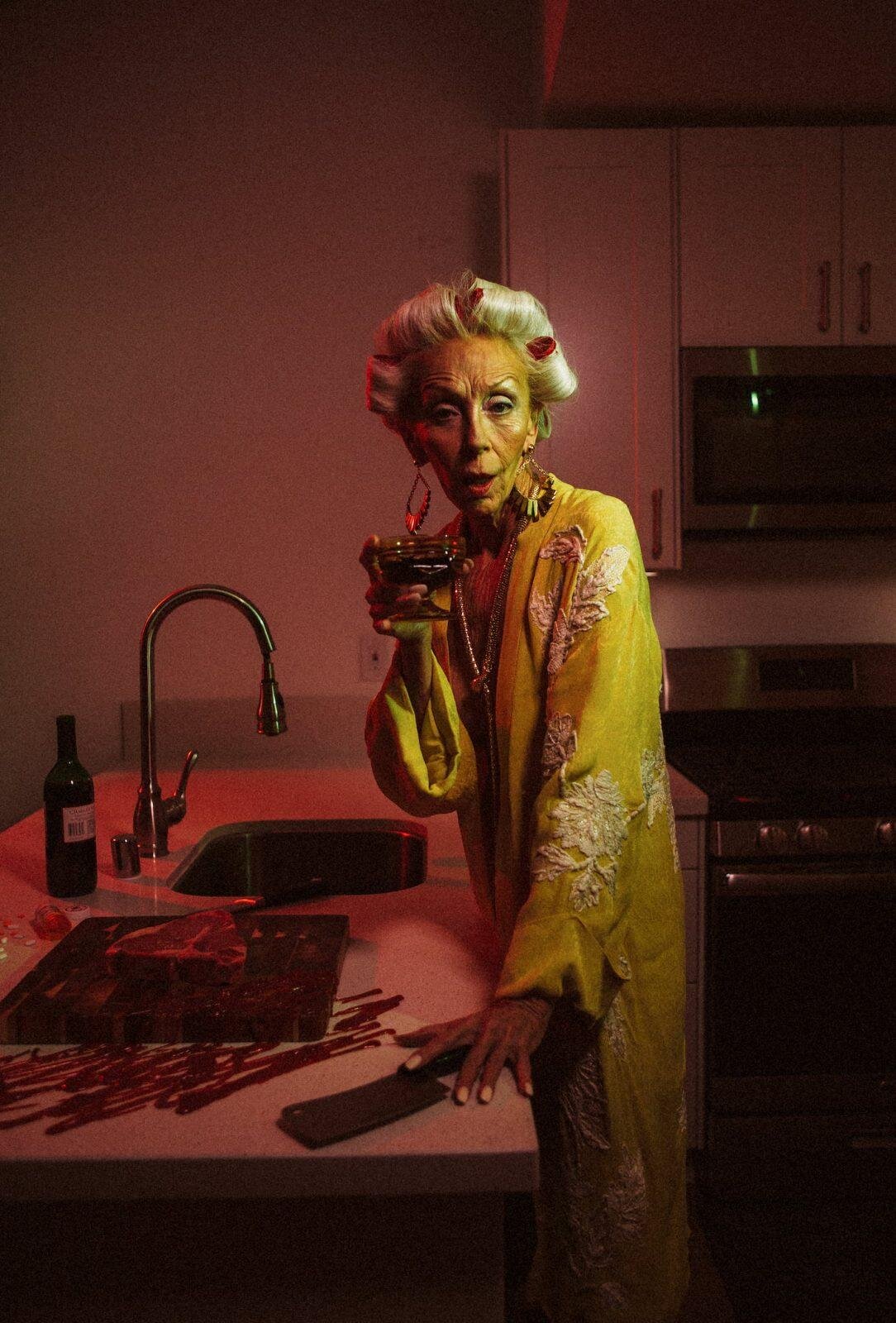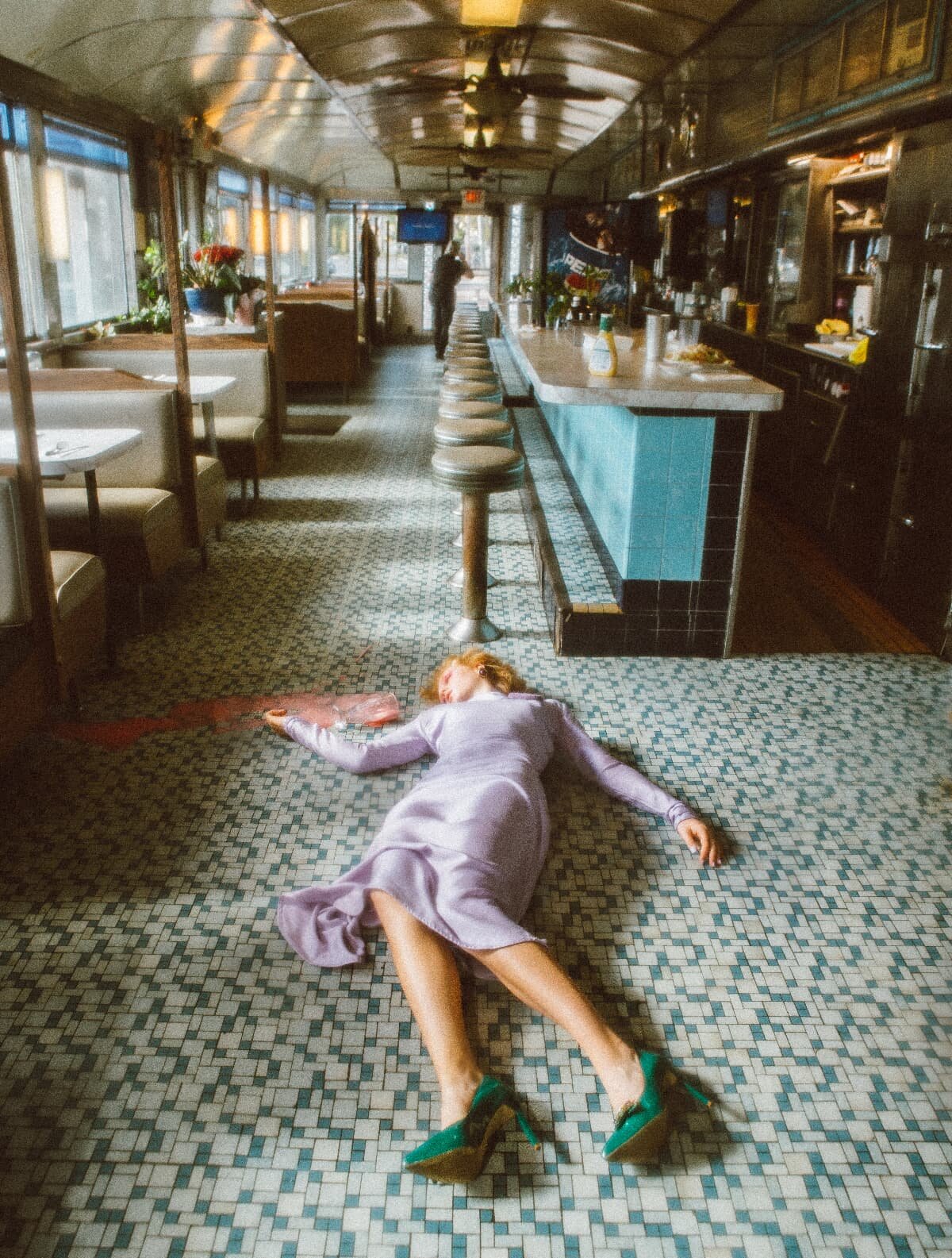FINDING TRUTH WITH LOU ESCOBAR
FINDING TRUTH WITH LOU ESCOBAR
Photographer Lou Escobar has a particular knack for finding truth and authenticity when shooting her subjects, no matter how stylized or produced her projects can be. Her lens prioritizes individuality rather than beauty per se, making her one of the few editorial photographers to have managed to not only embrace but also elevate notions of inclusivity and diversity.
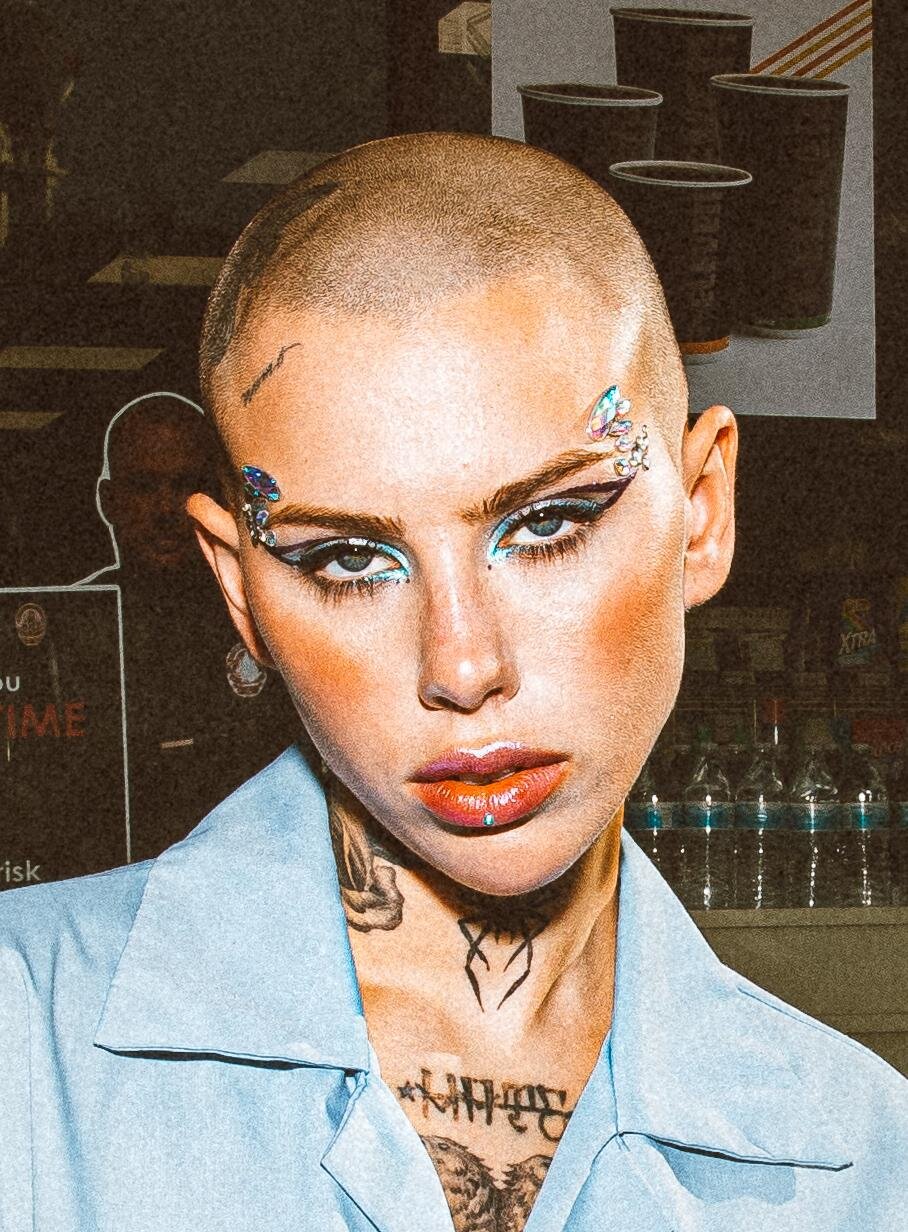
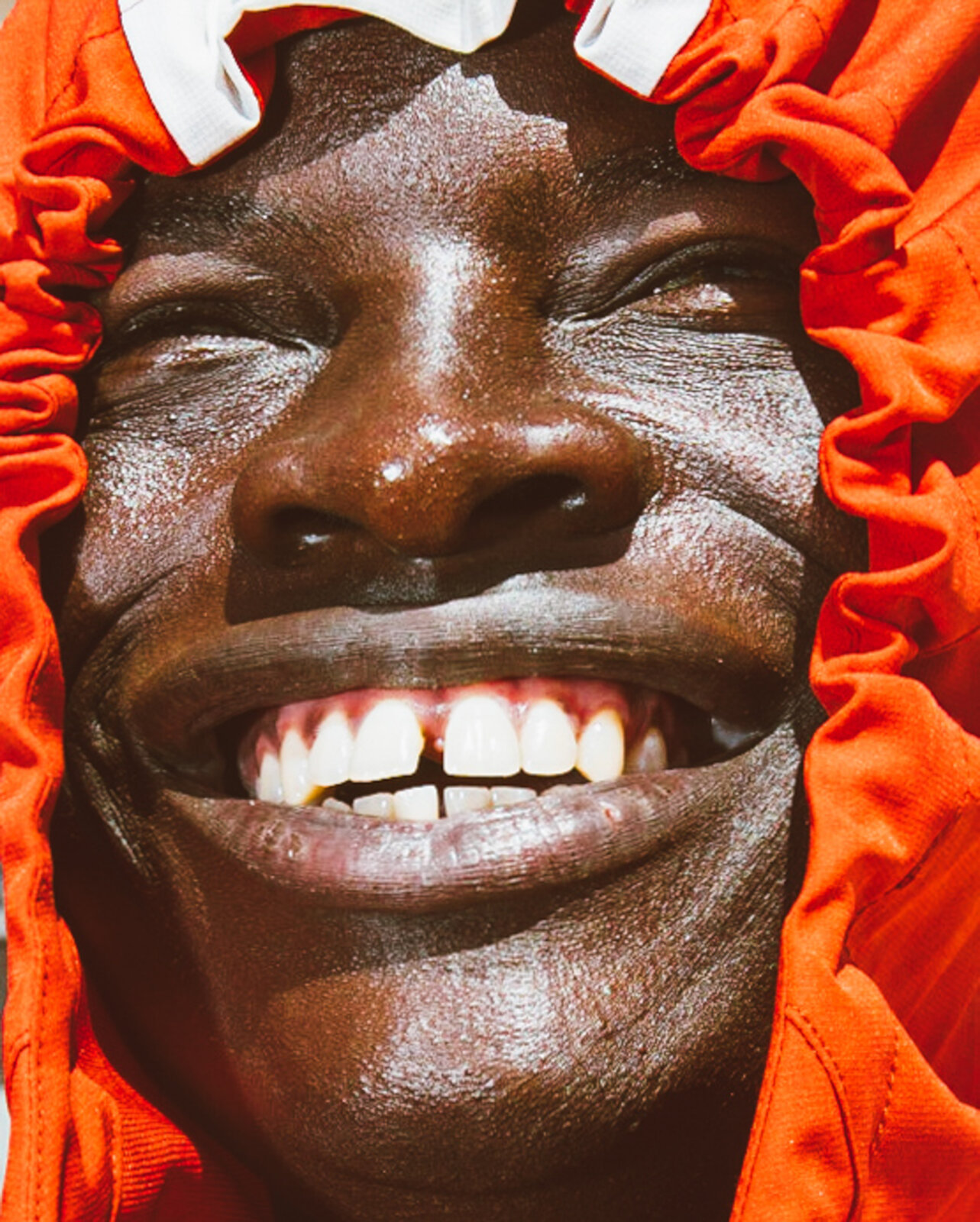
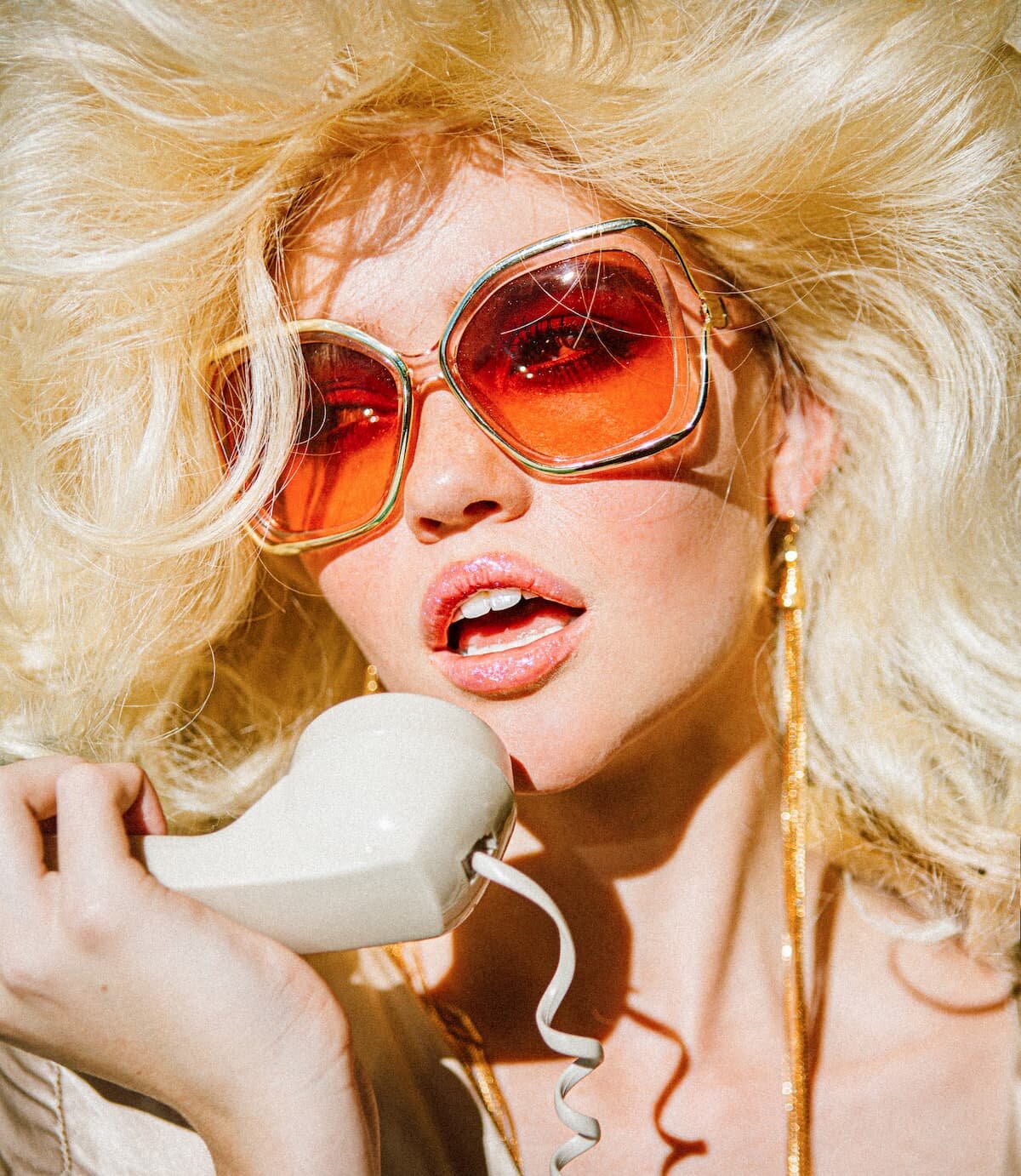
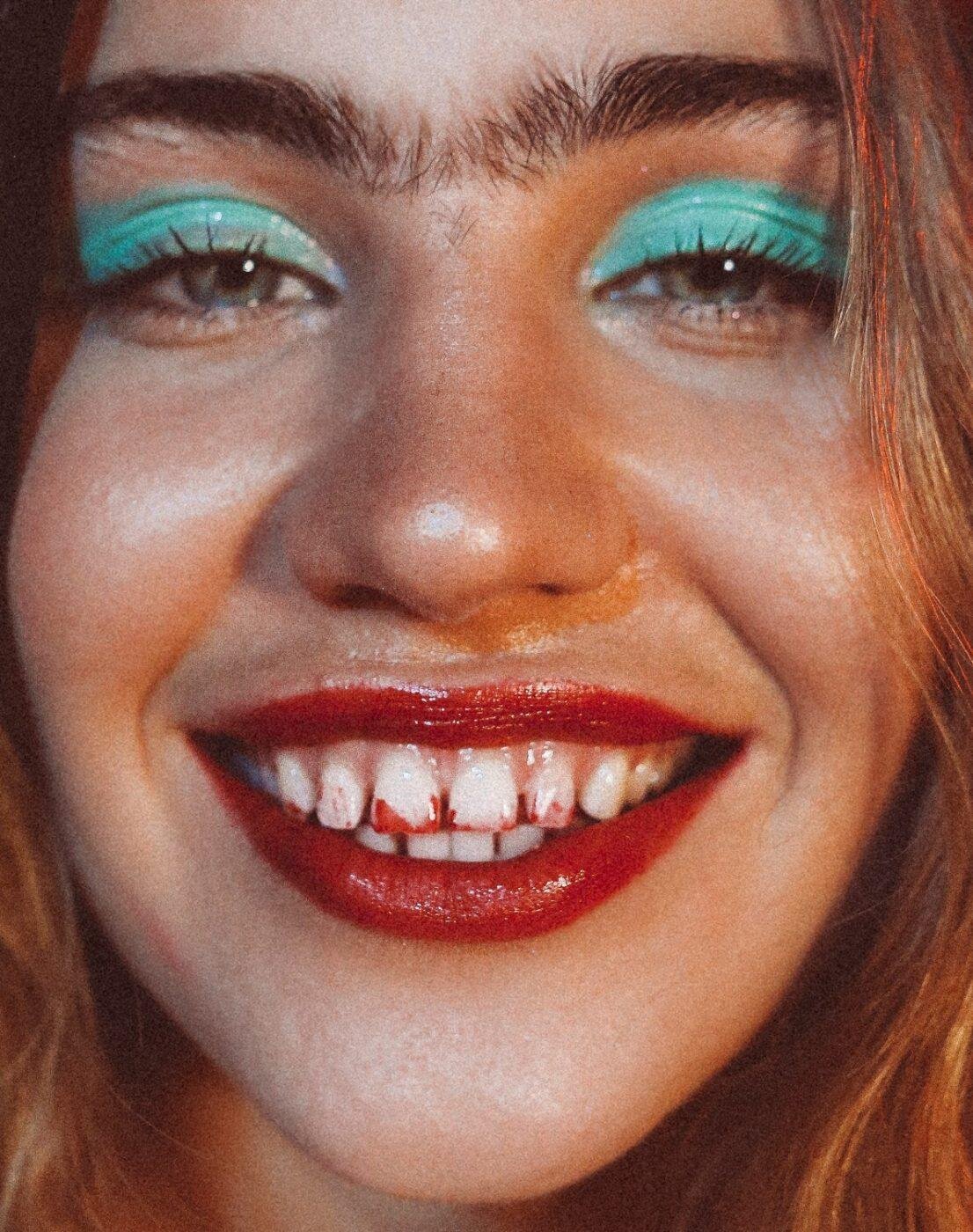
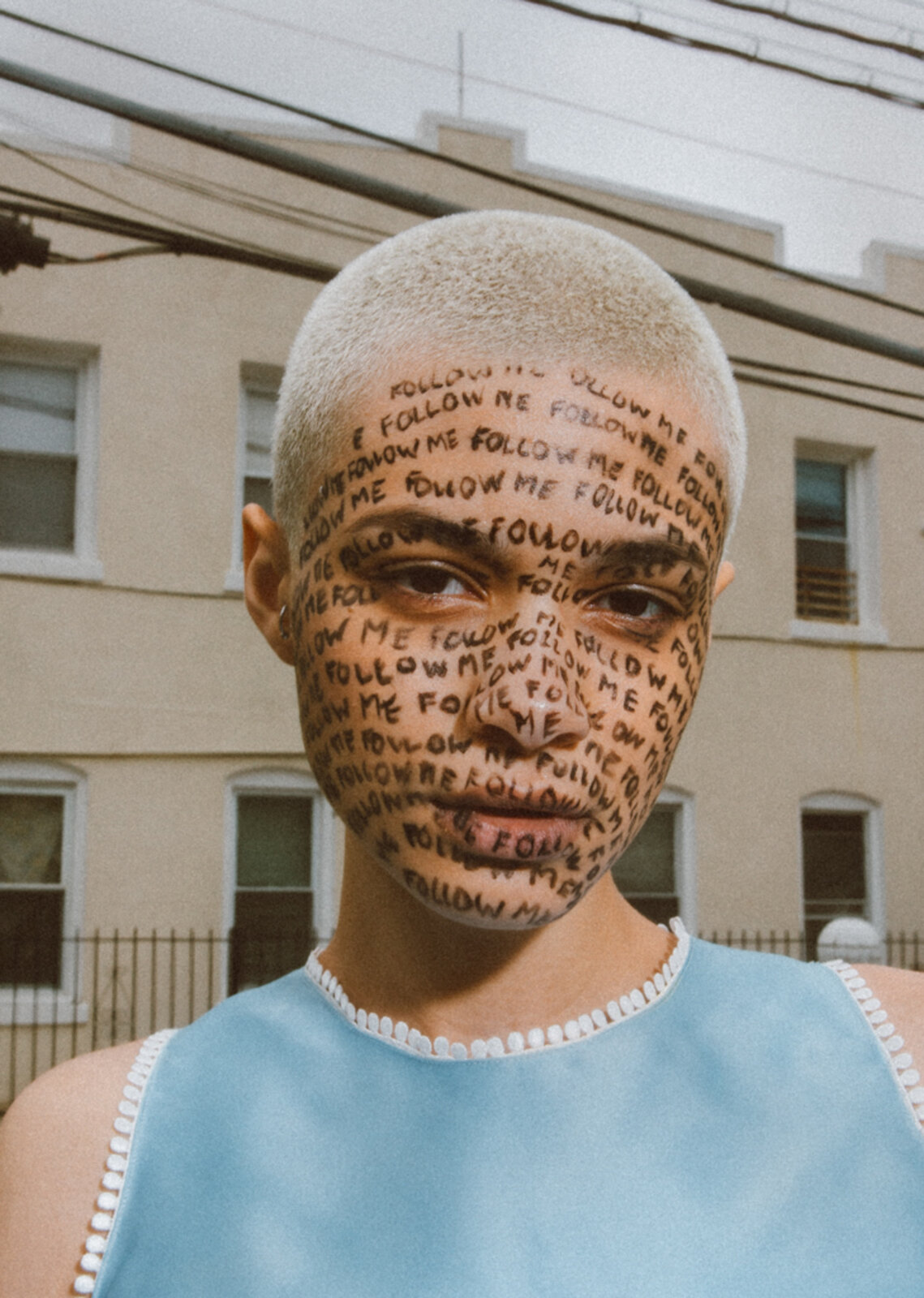
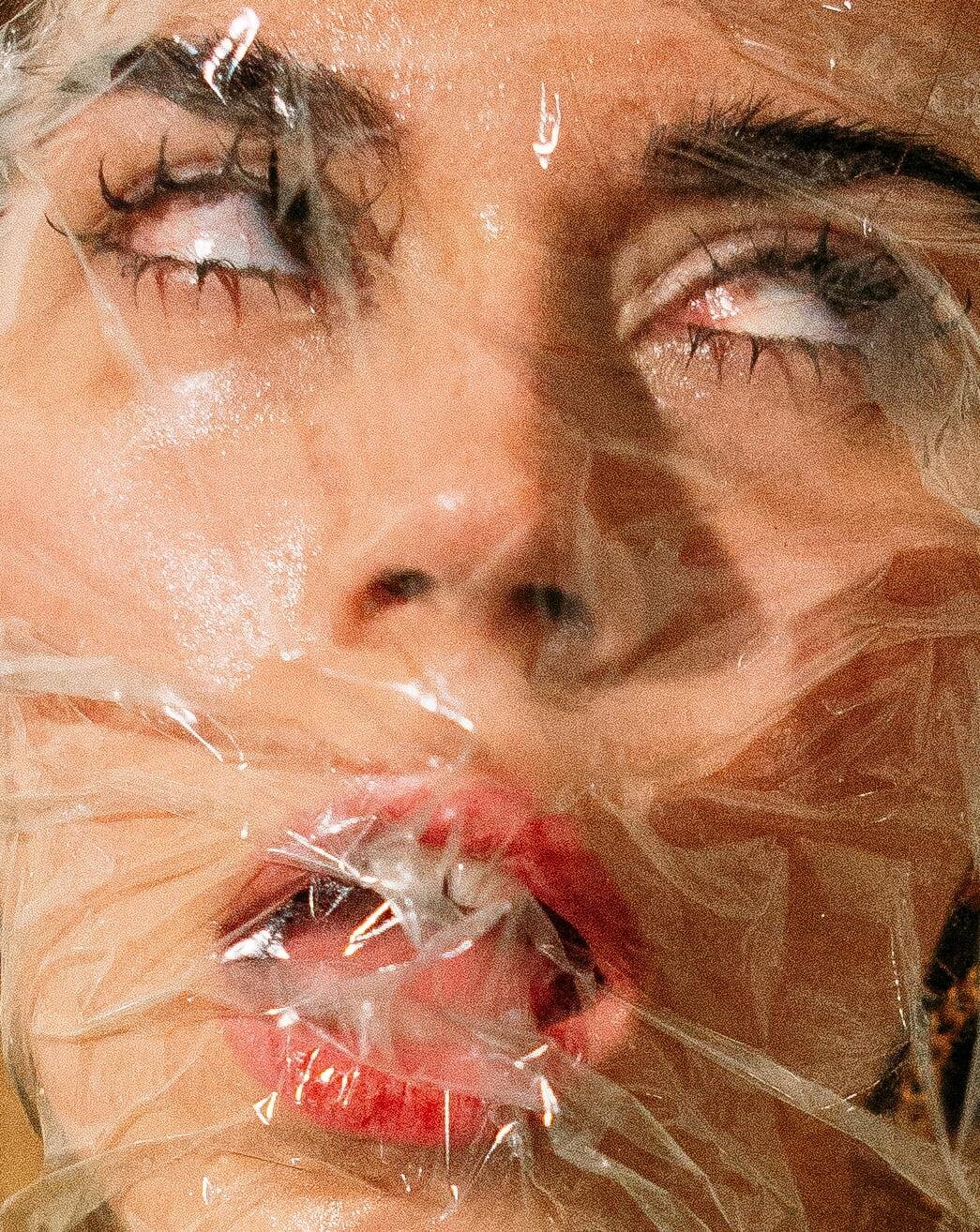
WHEN DID IT BECOME CLEAR THAT YOU WERE GOING TO PURSUE A CAREER IN PHOTOGRAPHY AND WHY?
I’ve always been looking for an ideal, searching for myself and a meaning in the world that surrounds us, which led me to move around a lot and travel… On the road, I met and connected with a lot of people looking for adventures. On one occasion, I made a particular connection. He was a photographer. He seemed to see the world in his own unique way and he shared it, which fascinated me. He would find humanity’s grace and see its beauty in its subtleties. At the time, I was rethinking my whole situation, and thought to myself ‘why don’t I try to share my own vision’ and see what happens. Everything felt simple in that moment. Picking up the camera to see the world through my own lens. I started to take pictures of my neighborhood in San Francisco, where I lived at the time.
The United States has always fed my imagination. All the films and TV series that I watched for hours on end… I briefly found myself working in a huge film studio, something out of the Truman Show, except I was the observer at all times. I discovered something magical: meeting, exchanging and falling in love with people in many different ways, but especially by putting them in the light, immortalizing them. When people started to show some interest for my work, it became an evidence. I started 5 years ago, and haven’t stopped since.
WHAT IS YOUR POINT OF VIEW AS A PHOTOGRAPHER/FILMMAKER?
My point of view, as implied by the ‘my’, has the filter of subjectivity. Each one of us looks at the world through our own lens. Through Lou, I observe, vibrate, and create. My point of view is always linked to my past and this influences how I interpret what I see and feel.
IN YOUR WORK, THERE’S A NOTICEABLE CONTRAST BETWEEN YOUR SUBJECTS AND THEIR ENVIRONMENT. WHY?
The set’s colours, graphics and natural state add narrative to the subject. Sometimes the contrast brings the subject back to our reality. It creates an opening, and brings truth. Finding an ideal truth in reality is what I aspire to and try to find every day.
DEFIANCE AND IRREVERENCE EMANATE FROM YOUR SUBJECTS. IS THIS INTENTIONAL?
Since I started photography, a part of me has been freewheeling. A part of me listens to the elements. I feel like answering this question by saying: it’s probably a hidden part of me that needs to sort some stuff out.
THE PERCEPTION OF BEAUTY IS GOING THROUGH A RADICAL SHIFT. ONE COULD EVEN SAY IT’S BEING DECOLONIZED. HOW WOULD YOU DEFINE BEAUTY NOWADAYS?
Beauty is found when there is a sense of truth. That’s why some radical changes have happened. The world has finally realized that expressing the natural was liberating and a kick. There is a certain beauty and joy in accepting the fact that we can be both beautiful and repulsive.
Finding an ideal truth in reality is what I aspire to and try to find every day.
THE CONCEPT OF PRIVILEGE IS NOW IN THE FOREFRONT OF POPULAR CONSCIOUSNESS. CONCORDANTLY, PRIVILEGE SEEMS INHERENT TO THE FASHION WORLD. IS THAT SOMETHING YOU ARE CONSCIOUS ABOUT WHEN CONCEPTUALIZING YOUR FASHION EDITORIALS?
To be honest I don’t think of my editorials as fashion shoots. I collaborate with stylists to define the vision and story I want to put forward. Style is important because it helps my subject express itself, colour is essential too. But I don’t feel like I know the language of fashion. I create stories, in which, intensity is the most important thing. I like to use all the tools we have to bring my characters into a realistic set, to humanize and make the story as accessible as possible. This is what I find the most interesting.
OFTEN, PHOTOGRAPHERS WHO PORTRAY GLOBAL SOUTH INHABITANTS WITH STRONG AESTHETICS ARE ACCUSED OF FETISHISM. WHERE DO YOU DRAW THE LINE?
Fetishism? I found myself in Africa for a music video project that was being filmed over there. In Senegal like South Africa, two countries where I spent a few weeks, I saw a very modern Africa. The youth that I photographed or filmed had the same contemporary vision as mine. Borders and differences are man-made. I saw modernity and beauty everywhere I looked. I wanted to share this vision without overthinking it.
WHAT IS YOUR BIGGEST CHALLENGE WHEN MAKING A LIVING AS AN ARTIST NOWADAYS?
To take as much pleasure in each new project, because it’s a job in which you have to invest yourself entirely and sometimes it can throw doubt on everything you do, and you can feel defeated. More generally, to keep that inner flame burning with the same intensity.
HOW HAS SOCIAL MEDIA IMPACTED YOUR REALITY AS AN ARTIST?
Social media has allowed me to test my style, inspire, and has also given me the strength to believe I was on the right path. It can be a driving force but also a way of getting instant feedback on what we create. However, I also decided to establish a few rules for myself, by not sharing my personal life as much as possible. I’ve always been afraid of alienating myself by starting to think of the best ways to portray myself. Today I put forward that I’m woman, but I don’t want to go deeper into the social media game. In the end, deep down, I take great pleasure in shining elsewhere and creating fascination with things other than my physique or personal life.
“Even if our generation moves fast, looking at yourself is not easy but essential to finding your true voice. ”
WITH MANY DIFFERENT ARTISTIC VOICES EMERGING, HOW SHOULD ONE GO ABOUT FINDING THEIR OWN UNIQUE VOICE?
A lot of people think it’s luck, I think it’s by listening to yourself. Understanding what resonates within and expressing it. Giving yourself time to find yourself. Even if our generation moves fast, looking at yourself is not easy but essential to finding your true voice.
DOES YOUR PROCESS DIFFER WHEN WORKING FOR CLIENTS OR ON PERSONAL PROJECTS?
The more people involved, the more there are conditions and constraints. But no matter what, for small or big campaigns, I try to stay honest to my intuition. I try to express it as best as possible with the tools I’m given. I always try to push the people I work with to their maximum so that everyone is proud of the result.
WITH MANY CORPORATE BRANDS HOPPING ON THE DIVERSITY BANDWAGON, DO YOU FEEL A SENSE OF RESPONSIBILITY IN GIVING DIVERSITY AN HONEST PORTRAYAL? IF SO, HOW DO YOU GO ABOUT DOING THAT?
Throughout my childhood and my travels, I’ve always been confronted to so much diversity that it has always seemed obvious to me that if I want to portray this ideal beauty in reality, it must be diverse.
WHAT’S NEXT FOR LOU ESCOBAR?
At the moment, especially with this global crisis, I’m not sure what the next step will be, but if I had to project myself, in 2020 I want to go to Japan for a few months. Make a movie and take pictures over there. I would also like to work on a music video that’s more narrative. In the meantime, I hope everyone will recover soon <3.
Interviewed by Ralph Arida
